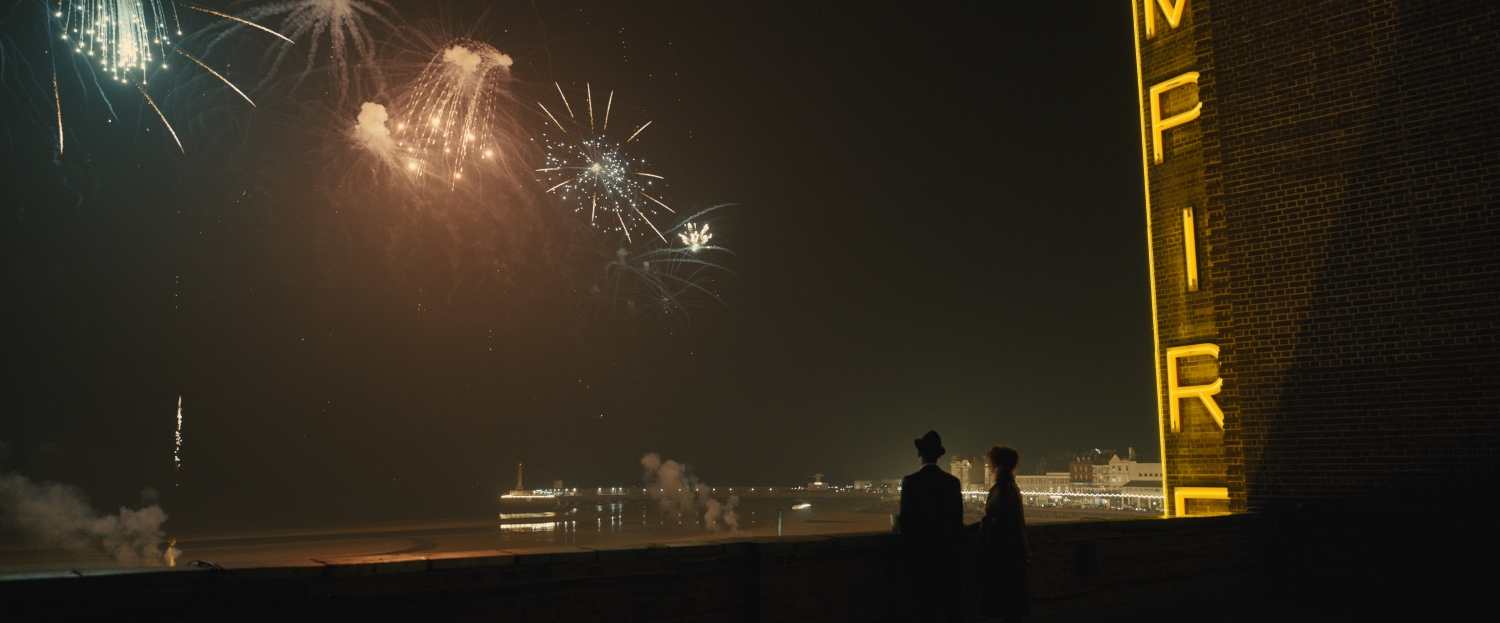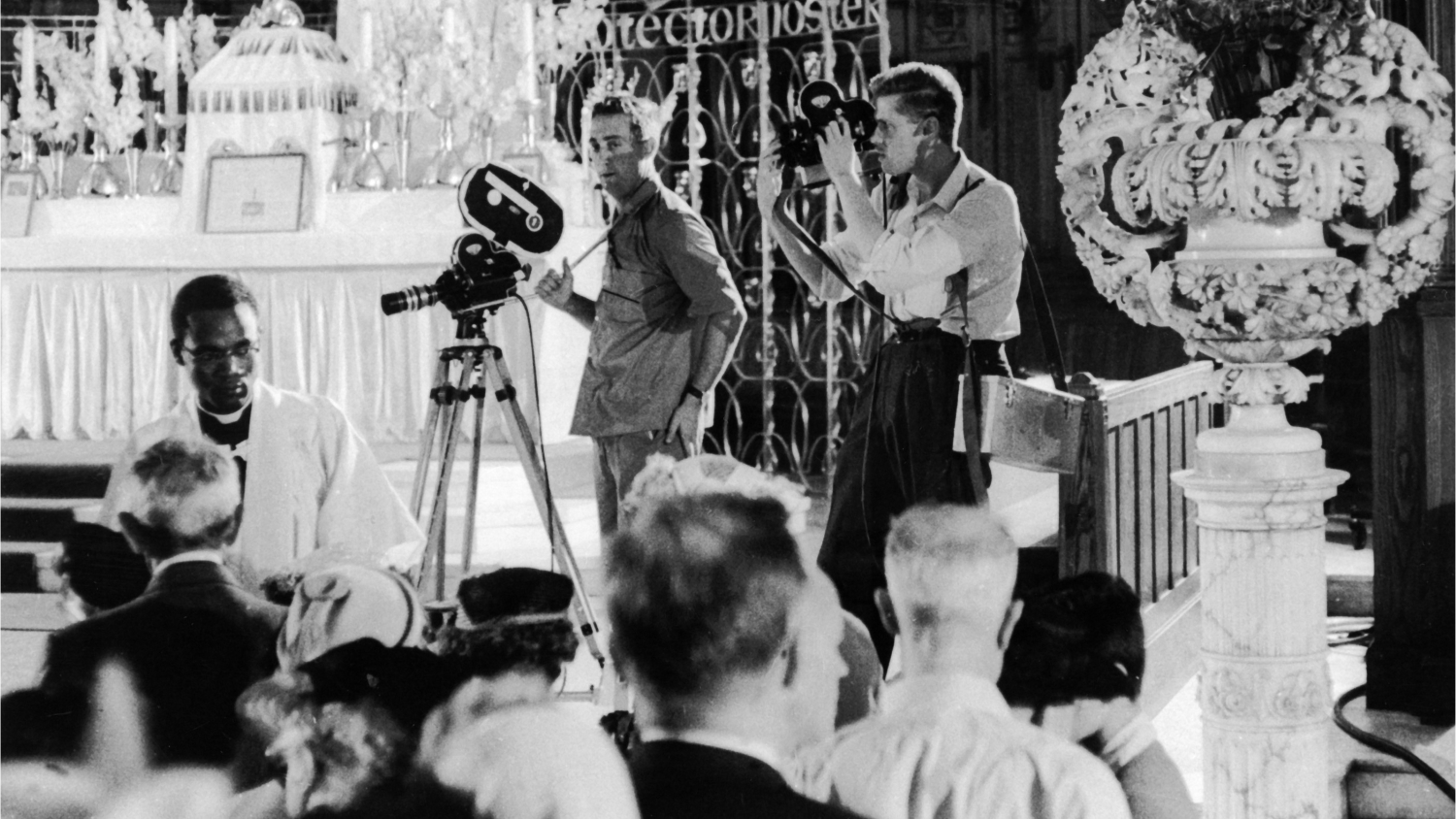“Our festival is generally a go-big-or-go-home type of festival,” observes Vincent Georgie. The executive director of the Windsor International Film Festival, speaking with POV in downtown Windsor during the 2022 edition of the event, has reason to be proud. WIFF is back in full swing with 11 days of in-person screenings, offering 177 films following a two-year COVID-induced pause. The festival is a cinephile’s paradise and a reminder that nothing replaces the in-person experience. With screenings taking place at venues that are all less than a five-minute walk from each other in downtown Windsor, WIFF lets movie buffs run the gamut of the best the world has to offer. One can easily see seven films per day without the headaches associated with navigating other festivals. This easy-to-navigate fest is all about the movies.
WIFF runs until November 6 after kicking off on October 27 with the opening night screening of Sam Mendes’s drama Empire of Light. The film stars Oscar winner Olivia Colman as a duty manager at a seaside cinema—an appropriate choice given WIFF’s bash at the Chrysler Theatre is just steps from the Detroit River. “Once we saw that, we knew it was perfect,” says Georgie. “We thought it actually captured the venue exactly right, but we also saw what it represented: that was what we wanted to say.”
The film sees Colman’s character Hilary transformed by an encounter with her colleague (Michael Ward) and her life saved by the escapist balm of the movies. By the end of the film as Colman bawls in the Empire as images of Being There project on screen, the screening appropriately reflects the catharsis of the festival’s return. “It was very emotional day,” admits Georgie.
From Drive-Ins to Full Houses
WIFF returns after the festival team opted to skip the virtual formats to which other events pivoted amid the pandemic. Georgie says the decision to hit the pause button was relatively simple as the team looked to the festival’s mission and vision. “Our values are about the experiential factor,” explains Georgie. “Part of our value is downtown Windsor and bringing people down here in the hustle and bustle. A virtual festival doesn’t achieve that.”
Instead, WIFF developed a roster of drive-in events catered to escapism and nostalgia in 2020 and 2021. Georgie says those events were great solutions that reiterated WIFF’s role within the community, but also reflected the pure logistical challenges that prove how placebo events can’t replace for the theatrical experience. Beyond the trickiness of trying to programme international art fare and anticipate sightlines for subtitles amid oversized cars, Georgie says the profit yield via drive-in ticket sales was pretty slim. Sold-out screenings meant only 87 cars, whereas full theatrical screenings can represent hundreds of tickets at larger cinemas. The ticket-sale to sponsor ratio was barely a fraction of the proper festival’s funding structure, compared to 45,000 tickets sold in 2019.
Despite the two-year hiatus, though, Georgie says that pausing was no obstacle to programming this year’s event. He notes it was simply a matter of checking in on the films they were tracking. “The industry hadn’t danced in two years, so we were trying to figure out what moves everyone’s doing,” notes Georgie.
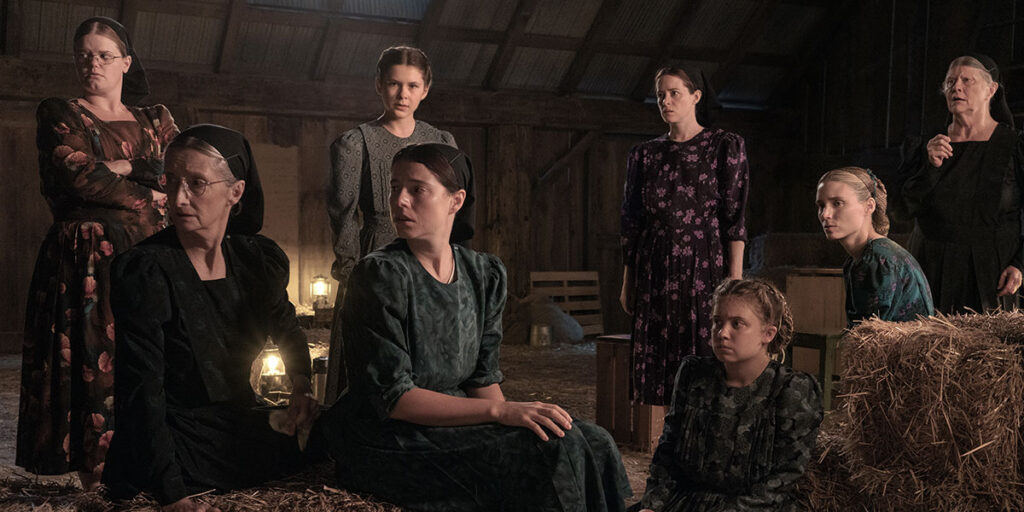
Something for Everyone
The Windsor film festival offers something of a “Choose Your Own Adventure” experience for audiences as Georgie notes that the curation of the line-up is the festival’s strength. Four films generally screen in any given timeslot, and they usually reflect WIFF’s focus on Canadian movies, documentaries, international art films, and award season staples.
Georgie says the programming is WIFF’s calling card. Drawing upon a host of favourites from the circuit, there’s something for everyone at any given moment. Highlights for Georgie among this year’s line-up include Sarah Polley’s powerful ensemble drama Women Talking, starring Rooney Mara, Jessie Buckley, Claire Foy, Judith Ivey, and standout Sheila McCarthy. The latter represented her cast by attending the WIFF premiere. “It’s just such extraordinary cast and the performances are so strong,” notes Georgie. “They work like one acting unit.” Other favourites for the WIFF director include Ruben Östlund’s Palme d’Or winner Triangle of Sadness, Charlotte Wells’ debut feature Aftersun, the Vicky Krieps showcase Corsage, and Lukas Dhont’s masterfully and disarmingly intimate drama Close.

WIFF Docs
The documentary front at WIFF is notably strong with roughly 30% of the selections representing non-fiction. The doc side of WIFF this year includes standouts like Long Live My Happy Head, Will Hewitt and Austen McCowan hilariously heartfelt portrait of artist Gordon Shaw. The film observes the cartoonist’s final years as he chronicles his experience with a terminal brain tumour. Audiences turned out for the sports doc Kaepernick & America in which directors Tommy Walker and Ross Hockrow recap football star Colin Kaepernick’s courageously controversial decision to take a knee during the national anthem in order to draw attention to police brutality against Black lives. While the doc doesn’t feature words from the player himself, it nevertheless connects his activism with the groundswell of support mobilized for Black Lives Matter in 2020. It’s a timely and inspiring work.
Meanwhile, the local front of WIFF featured a massive turnout for Nicholas Shields’ documentary Walkerville’s Willistead Manor: A Home that Shaped a Community. The film’s premiere at the Capitol Theatre wrapped around the block. It could easily have been mistake for the TIFF premiere of Steven Spielberg’s The Fabelmans given the hubbub. It’s the first time since 2019 that I didn’t get into a festival screening due to high turnout. And I saw 60 films at TIFF this year!
Other WIFF highlights on the Canadian front include Laura Rietveld’s study of a family’s legacy of living off the land, Family of the Forest. Barri Cohen’s Unloved: Huronia’s Forgotten Children continued to touch audiences with its close-to-home story of systemic abuse in an Ontario institution, and the offbeat and scrappy Okay! The ASD Band Film.
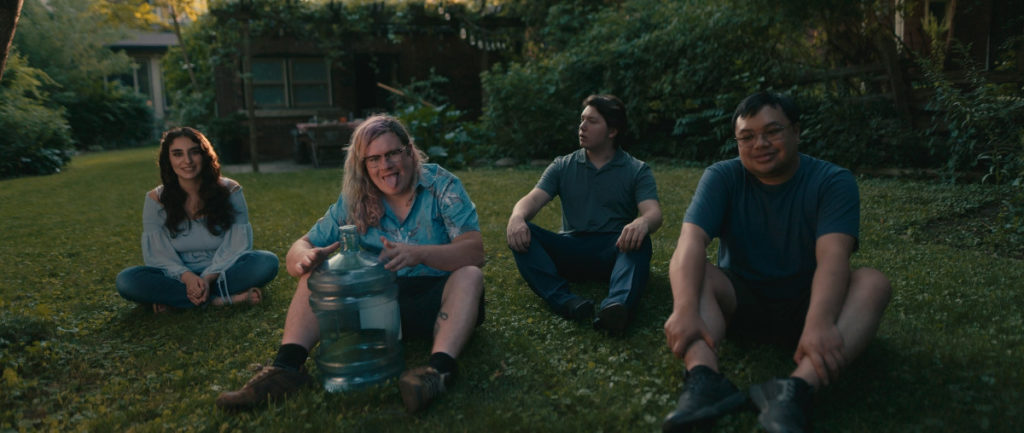
Hot Docs Showcase
Part of WIFF’s strong documentary crop comes thanks to the festival’s relationship with Hot Docs. WIFF features a documentary showcase in which 14 films are handpicked by Hot Docs president Chris McDonald and artistic director Shane Smith. Docs screening as part of the showcase include Hot Docs’ Canadian winner Geographies of Solitude, the riveting exposé The Killing of a Journalist, the poetic observational doc Museum of the Revolution, the sure-fire crowd-pleaser Still Working 9 to 5, and the big-screen archival epic Fire of Love.
Georgie doesn’t worry much about establishing a haven for cinephiles in close proximity to two of the world’s largest festivals, Hot Docs and TIFF. The latter serves as the kick-off for WIFF with the festival’s announcement of the Canadian competition. “We view TIFF as a worldwide film festival leader that happens to be three hours away,” observes Georgie. “It’s an odd comparator.” At the same time, WIFF offers the first chance for out-of-town Torontonians to catch some of the circuit’s top films, like Close, which won the Grand Prix (runner-up) prize at Cannes and was among TIFF’s most curious omissions. It has a whopping quartet of screenings at WIFF this year among the fest’s LGBTQ2+ spotlight.
“We certainly like working with Hot Docs and TIFF on our Canadian selections, finding discoveries, and having their support,” adds Georgie. “But our nominations for the Canadian film prize are very important for us – we’re looking at the full Canadian year to find our selections.”
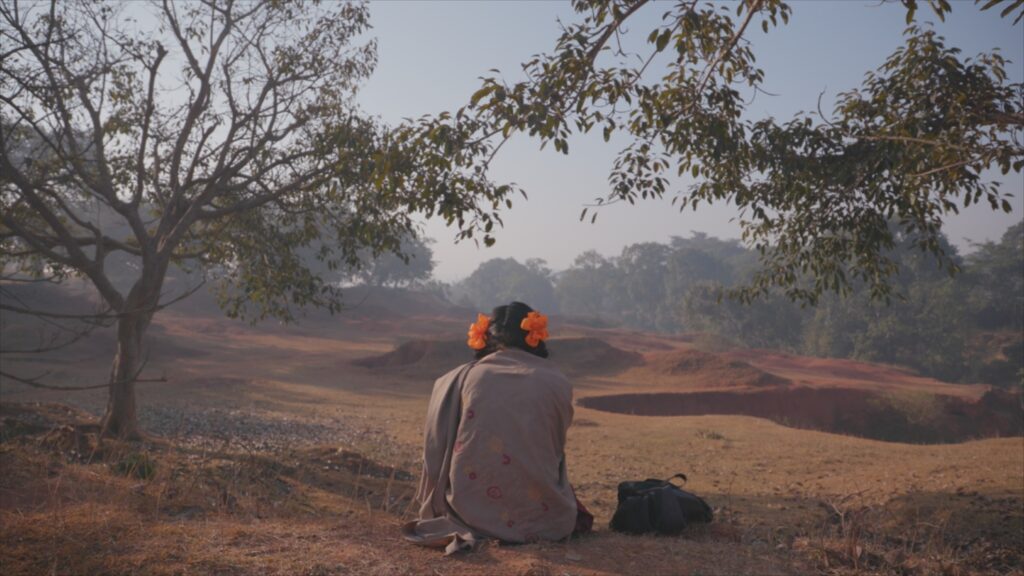
The WIFF Prize in Canadian Film
Two Canadian documentaries competed for the WIFF Prize in Canadian Film. Nisha Pahuja’s searing portrait of a family’s pursuit of justice in To Kill a Tiger should be studied as an example of empathetic storytelling. The film dances ballet in a minefield, so to speak, as Pahuja navigates competing perspectives in a small community in which a young woman was raped. She wants justice, but her neighbours advise her family simply to accept her fate. Tiger screened alongside Jason Loftus’s animated hybrid doc Eternal Spring, which is Canada’s official submission in the Oscar race for Best International Feature. The film marks a uniquely collaborative approach to storytelling as Loftus works closely with artist Daxiong to chronicle his experience confronting censorship by the Chinese government. As with Tiger, it’s a film made with clear trust and confidence between director and subject.
Anthony Shim’s drama Riceboy Sleeps, meanwhile, won the WIFF Prize in Canadian Film for its deeply moving portrait of a Korean-Canadian family building a new life in Vancouver. The lead performance by newcomer Choi Seung-yoon as the devoted mother in particular demonstrates Shim’s assured hand as a director. Riceboy Sleeps previously won the Platform Prize at TIFF’s spotlight of auteur cinema and marks Shim as a talent to watch.
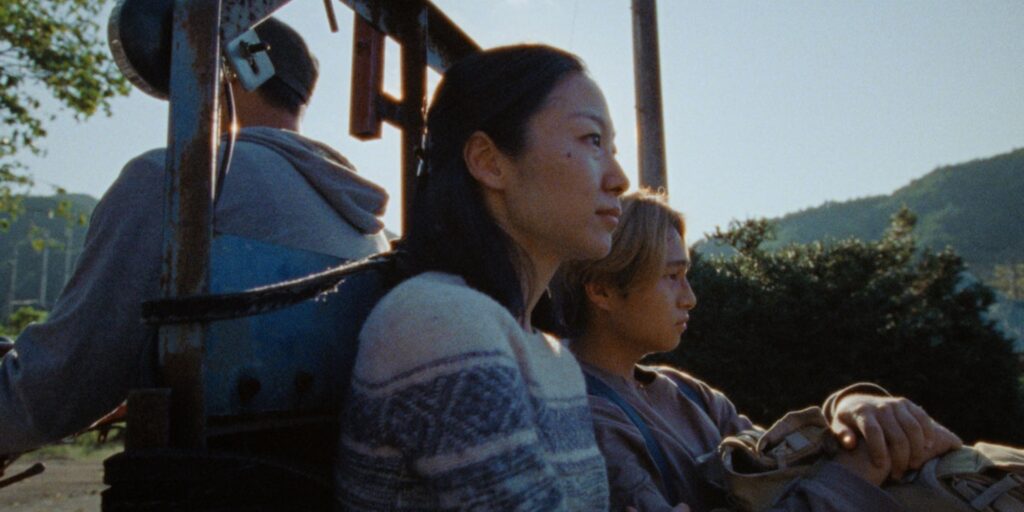
Upping the Ante
The other nominees in WIFF’s competition demonstrate a notably strong year for Canadian film. Brother, directed by Clement Virgo, is a potent family drama set in Scarborough that faithfully and cinematically adapts David Chariandy’s novel. Falcon Lake, directed by Charlotte LeBon, offers a haunting slice of cottage-country Gothicism. Film critic/filmmaker Chandler Levack’s feature debut I Like Movies is a laugh-out-loud funny ode to cinephilia.
North of Normal, directed by Carly Stone, features another star turn from Sarah Gadon. Félix and Meira director Maxime Giroux offers a different facet of his talents with the fascinating financial swindle drama Norbourg. Meanwhile, Something You Said Last Night is a groundbreaking film that heralds a new talent in Luis De Filippis. Finally, The Swearing Jar, directed by Lindsay MacKay, delivers on the promise of her breakthrough Wet Bum with its fractured infidelity drama fuelled by strong performances and heart-swelling acoustic ditties.
The WIFF win for Riceboy Sleeps, moreover, carries a cash prize of $25,000. The purse nearly doubled in value since the 2019 edition of the festival, which makes it one of the bigger paydays for Canadian film on the festival circuit.
“One of the best ways to be committed to Canadian film is committing to it,” notes Georgie. “We exhibit it, we show it, we promote it, but then the prize goes right to the filmmaker and we’re doing something substantial.” Georgie says the move to raise the purse to $25,000 from $15,000 was one of the easiest decisions the WIFF board has ever made. “We wanted to make a very strong statement to Canadian filmmakers that we are here, we’re behind you, and we want to honour you.” Based on the atmosphere at this year’s festival, it seems that WIFF delivered to the filmmakers and audience alike.




